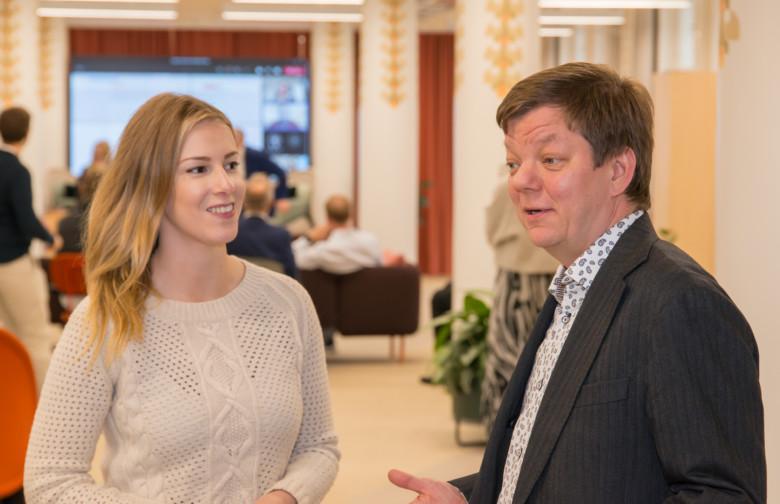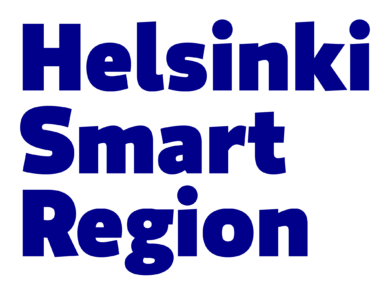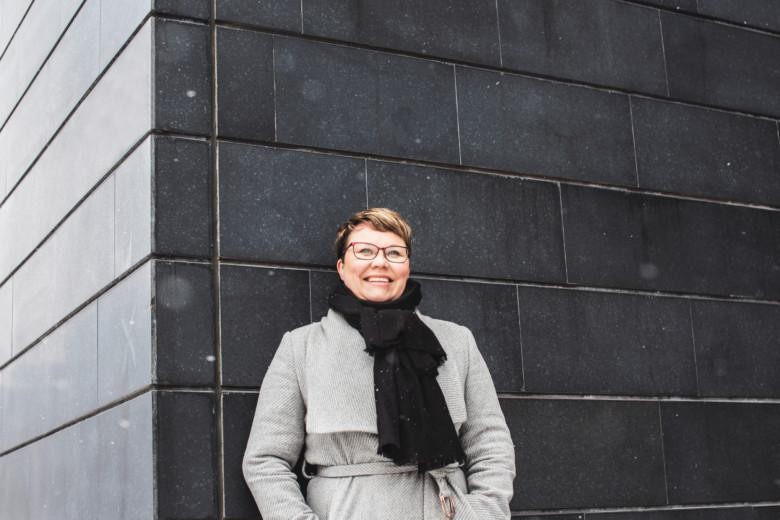Cases

Citizens' city
Thanks to MyData, residents can get proactive services
Published:
Wouldn´t it just be great if my library could recommend me more books to read based on what I have read so far – just as Netflix gives me recommendations for films and TV series? And wouldn´t it be handy to have all your skills and work information accessible at once and from different sources for your own personal use and for sharing it with relevant parties, like recruitment agencies and career counselling services.
These are two examples told by Ms Wilhelmiina Griep and Mr Teemu Ropponen. Ms Griep works as a Project Manager in the City of Espoo and Mr Ropponen as a General Manager in the non-profit organisation MyData. They are both MyData experts. The current main task of Ms Griep is to find out about the possibilities to develop the services of Espoo by utilizing MyData. The purpose of Mr Ropponen´s organisation, MyData Global, is to empower individuals by improving their right to self-determination regarding their personal data. People must have the opportunity to manage, utilize and disclose any personal data collected on them.
Trust is essential
There is an obvious need for a fair use of personal data. The data economy is growing, and it is an essential part of digitalization as such. If the residents grant businesses and authorities access to their data, it would be possible to develop data-based city services that are timely and even predictive.
Consumers must be able to trust digital products and services as much as they do other products and services. Motivation is also needed: if you know the benefits, you might be willing to submit your data. According to the Finnish Innovation Fund Sitra, a move towards a fair data economy requires co-operation and the active involvement of individuals.
In her blog, Ms Jaana Sinipuro, Leading Specialist at Sitra, recently mentioned that constantly increasing digital services are becoming a part of our everyday lives, while the way we use these digital services, including social media, is still taking shape.
– We need to be able to shape our digital lives to suit our needs, she writes.
If people can trust the entire European data infrastructure, they will be willing to share more and better data. That would mean better services for everyone.
Europe, the global pioneer?
In Europe, the access to data and data usability has created obstacles for economic growth, which has been especially difficult for small companies. If we managed to create successful practices for the fair and transparent processing of personal data, consumer services could compete fairly in markets that are now defined by unfair competition, Sitra states.
The European Commission describes a future, in which companies could collect and use data, be innovative and co-operate under fair conditions. The Commission thinks digital dividends should be distributed more equally than before. The goal is to make Europe the global pioneer of ethical data use.
Many benefits for cities and their residents
The Cities of Espoo, Helsinki, Turku and Oulu have been receiving Finnish government funding for developing the use of MyData. The purpose of MyData Operator project is to find ways to avoid compromising the use, the protection of privacy and information security of MyData. These cities have different types of data on the local and regional residents, collected by using various services. It would be valuable for them to get an access to more comprehensive data while they are developing better services.
To be able to utilize MyData, the city needs to better understand what kind of data is collected and how it can be utilized, Ms Griep says. The residents can give their permission for the city to utilize their data in its organisation, or share it between different services. For example, the existing data on somebody’s sports activities could be useful in health services.

Trust, again, is of the essence of data usage. The residents need to trust that the City of Espoo is using data correctly and with their consent. In the end, it can truly benefit both the residents and the city. Ms Griep thinks that MyData can help the city to have a knowledge-based management and to develop personalized services.
According to a study conducted by Espoo that is just about to be completed, the use of MyData could develop a wide range of city services, all the way from health care to education. In a project of its own, Helsinki has developed its MyData capabilities, and there is a clear wish to utilize this data better than before – and in cooperation with city residents. The City of Helsinki aims at an intelligent use of technologies to provide services that facilitate the daily lives of its inhabitants.
Less bureaucracy and seamless services
As stated before, the sharing of personal data must be based on trust, but also on a balanced relationship between individuals and organisations, Mr Ropponen says. He also emphasizes that a fair usage of MyData offers an easier everyday life with less bureaucracy.
At their best, personal data services are based on the different needs of individuals. A smart use of personal data can greatly help to serve individuals in their current life situations. One example is a student who needs a discount ticket for public transport. Would it not be convenient if you do not have to prove your student status by visiting a public transport office with all the documents needed? A digitalized form of service with your permission would take care of that by checking your current student status from another authority, the Finnish National Agency for Education.
According to Mr Ropponen, Finns seem to trust their authorities and their home cities. So generally speaking; giving the personal data to these forms of public administration does not seem too risky. He hopes to see better MyData capabilities in companies, in the public sector and of course, among the general public. The ideal situation has been achieved when people get value from their data and are able to control how it is being used, while at the same time organizations are able to ethically use this data.
More information
MyData Global invites companies and public sector organisations to participate in H3C, the project Human-centric companies and Cities. The project accelerates the development of digital services in smart cities by building capacity in personal data management.The project is funded by Helsinki-Uusimaa Regional Council.
The MyData organisation is arranging training in how to use personal data. It is based on the MyData approach, and the target group is authorities and people in businesses.
The training programs are starting in November and December 2021.
Image credit: Ilkka Ranta-Aho










 Return to listing
Return to listing